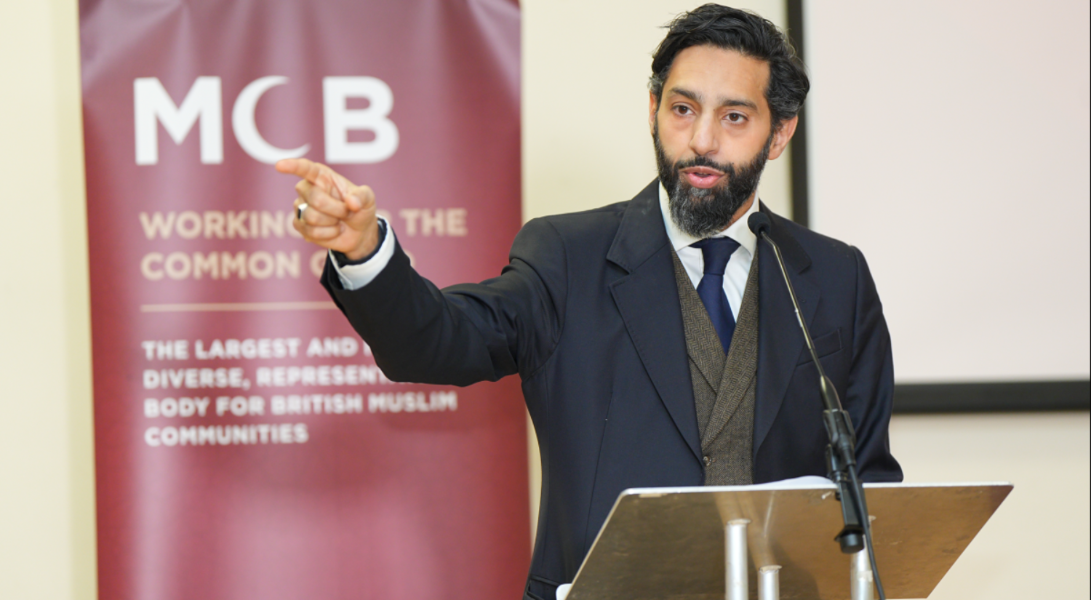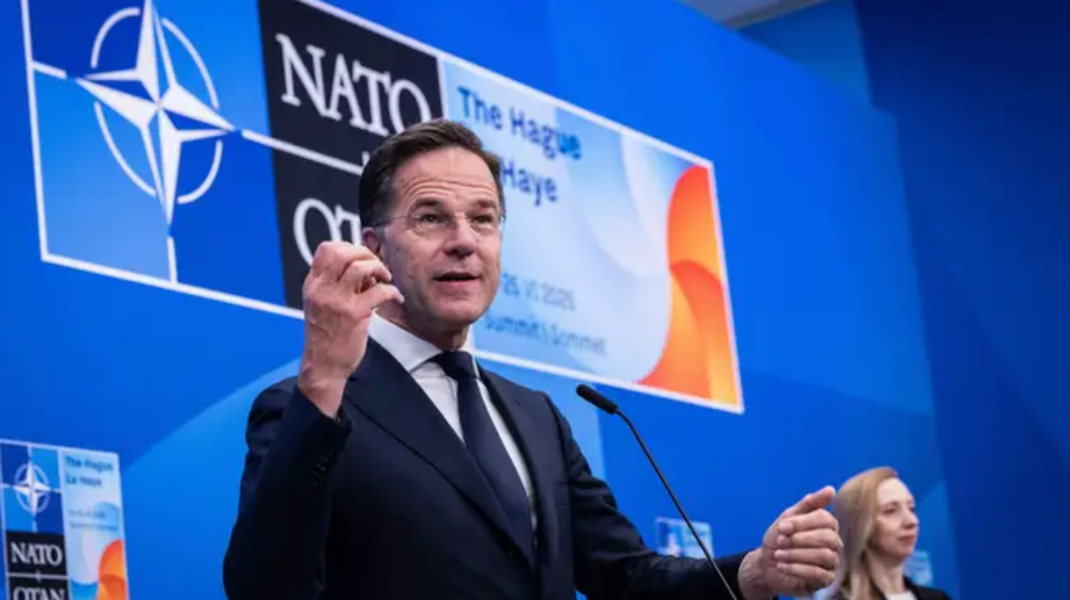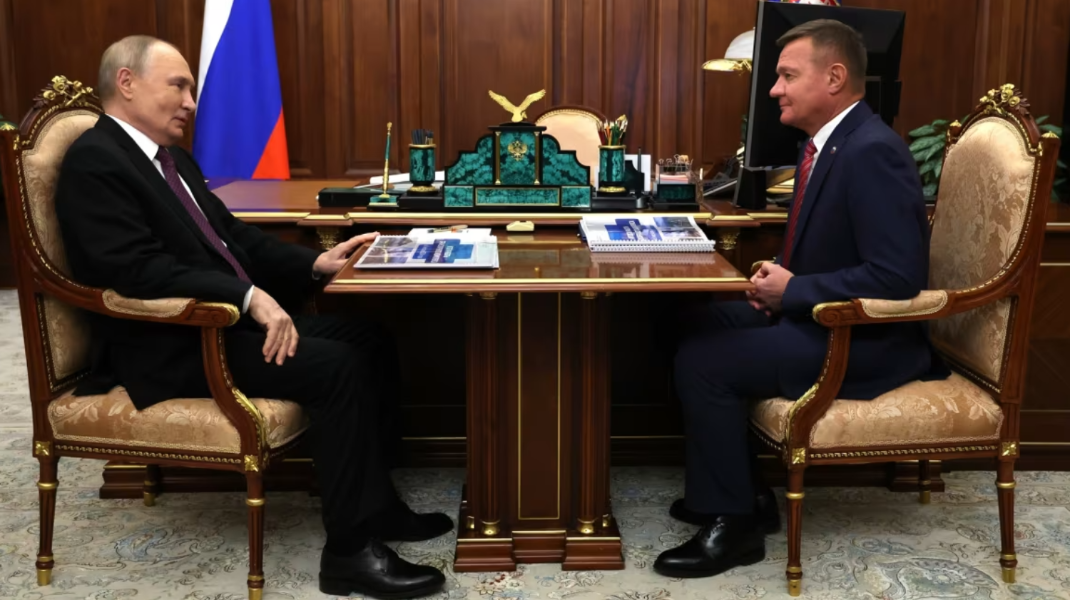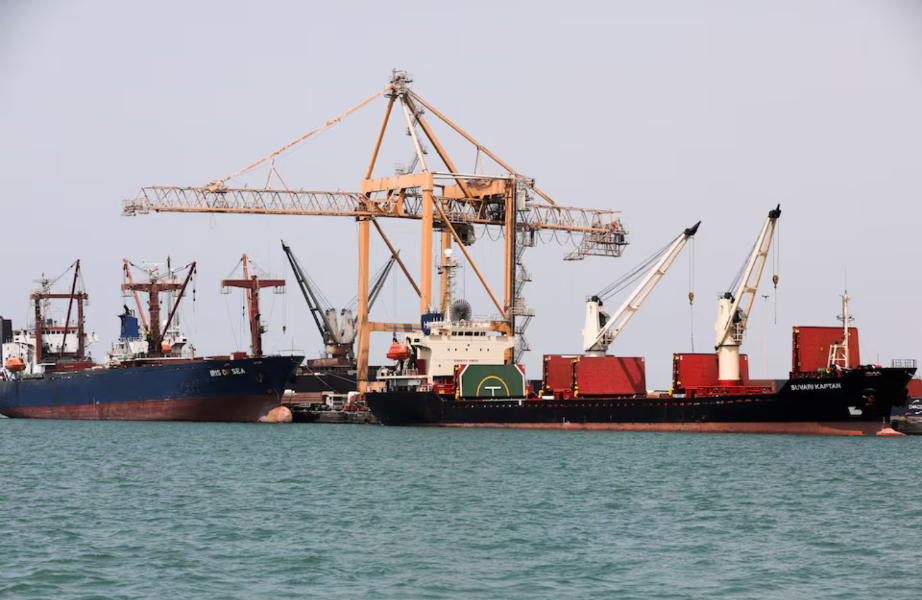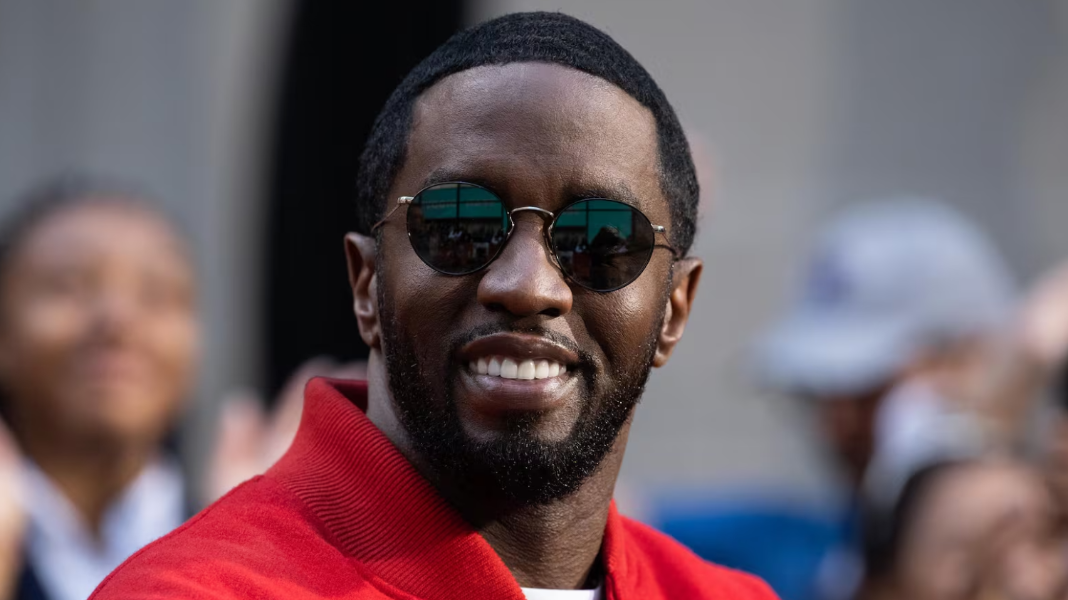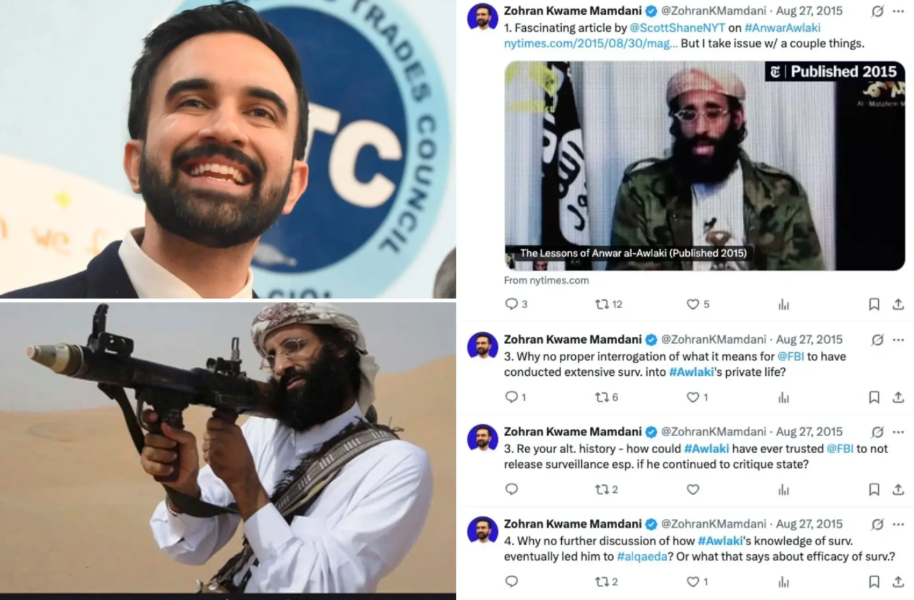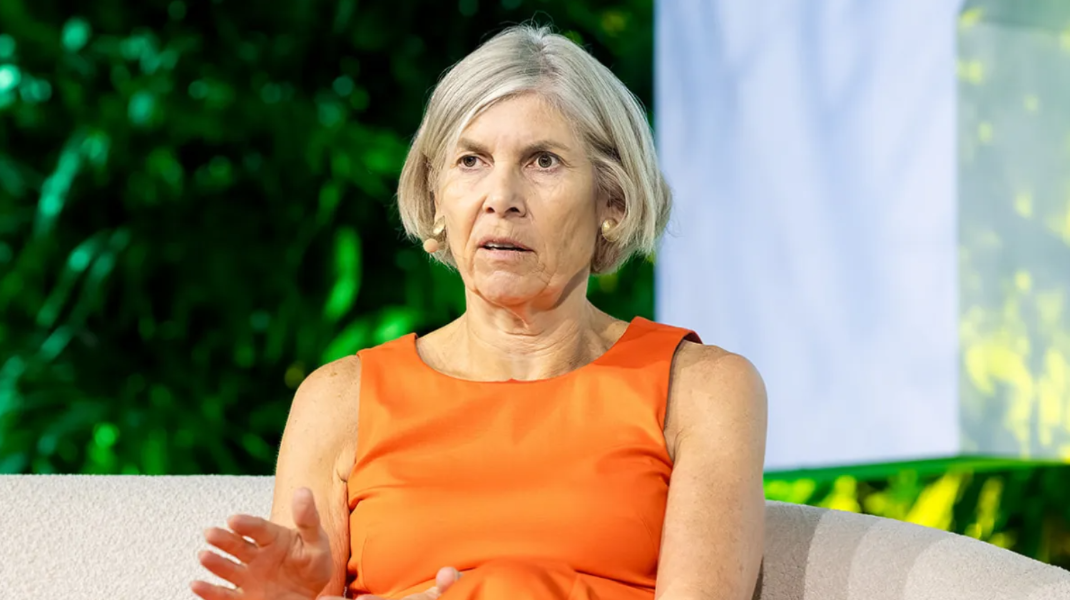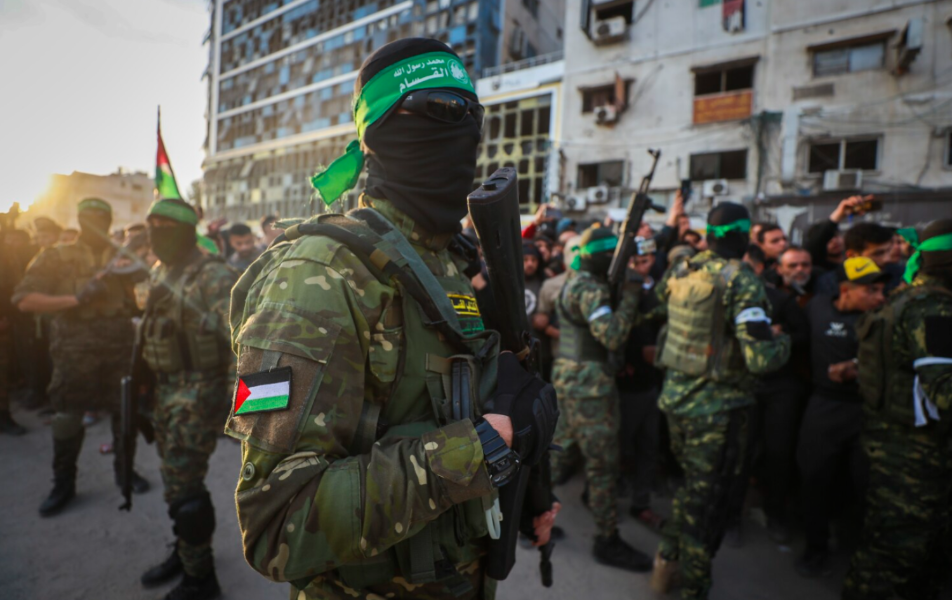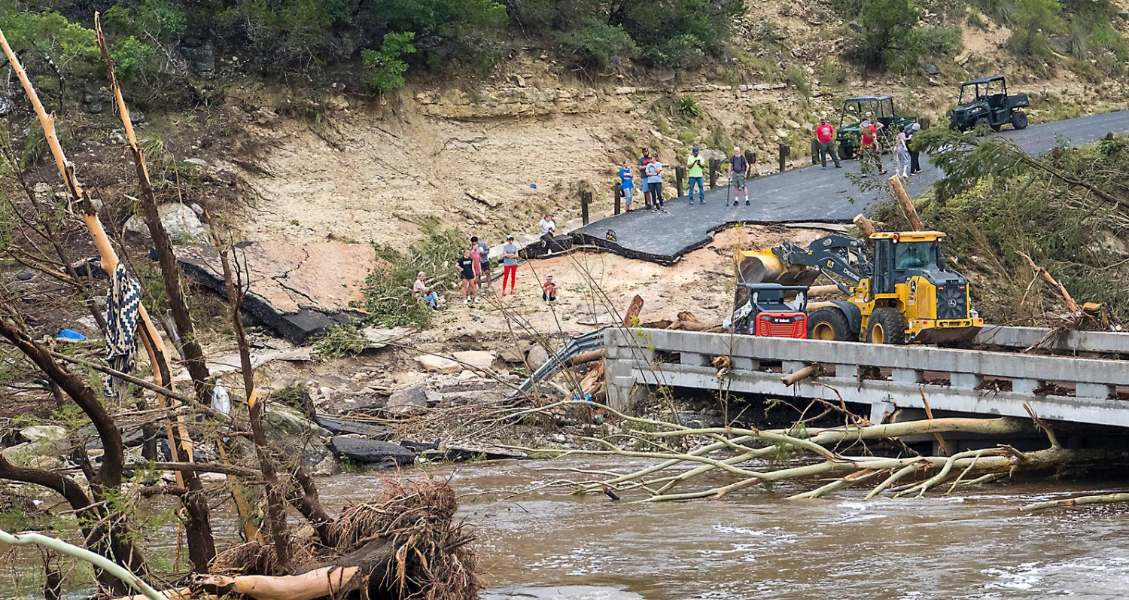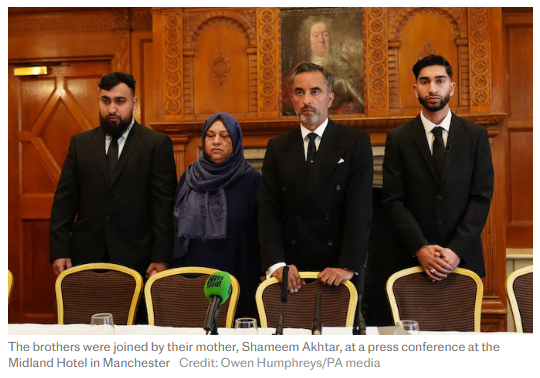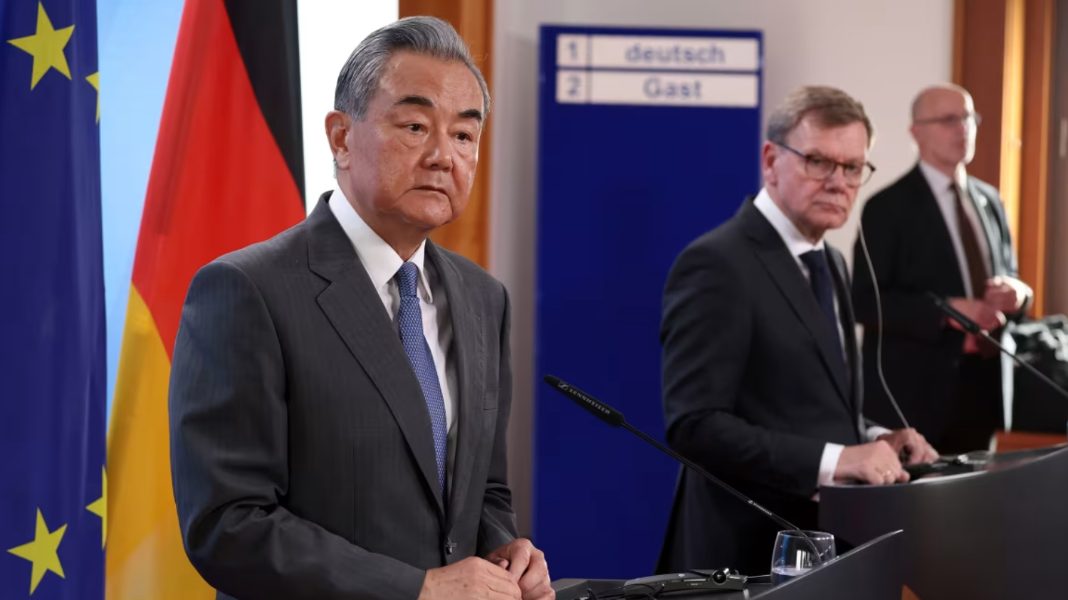-
Posts
10,778 -
Joined
-
Last visited
Content Type
Events
Forums
Downloads
Quizzes
Gallery
Blogs
Everything posted by Social Media
-
Post removed as a topic on that is already running:
-
Elon Musk’s vast business empire is beginning to show signs of strain as his falling-out with former ally Donald Trump deepens, casting uncertainty over the future of Tesla, SpaceX, and other ventures under his control. While Musk remains one of the wealthiest people on the planet, his high-profile break with the the president has triggered a market reaction that threatens both investor confidence and future government support. Tesla shares slid 6.8% on Monday, continuing a sharp downward trend that began when Musk publicly criticized Republican budget plans last month. That public rupture evolved into a wider political move when Musk announced he would launch a new political movement—the America Party—with ambitions to influence the 2026 House and Senate elections. Since the beginning of June, Tesla stock has lost about 14% of its value, amounting to more than $100 billion in lost shareholder wealth. Musk himself has seen his personal fortune shrink by nearly $20 billion on paper. The deterioration of Musk’s relationship with Trump could prove costly. As the Republican Party controls all three branches of government, Musk’s businesses now face political headwinds. Investors who once expected Tesla to benefit from favorable regulatory decisions and continued federal contracts for SpaceX are being forced to reconsider. “While the opportunity is outsized, the risks are very significant as well,” wrote Ivana Delevska, founder of Spear Invest, who recently divested from Tesla amid the growing uncertainty. “While the reward potential is clearly here, the risks are significant as well.” The timing of this political drama is especially unfortunate for Tesla. The company began launching its robotaxi fleet in Austin last month, a pivotal development Musk has touted as central to Tesla’s long-term success. However, the company is also losing ground to global competitors like Chinese electric vehicle giant BYD, which is gaining traction across both China and Europe. In the most recent quarter, Tesla’s deliveries fell nearly 14%, a drop partially attributed to the ongoing backlash surrounding Musk’s political forays. SpaceX, meanwhile, is preparing for a potential uncrewed mission to Mars in 2026, an effort that requires consistent focus and stable government relations—both of which could be jeopardized by Musk’s renewed political engagement. William Blair analyst Jed Dorsheimer captured growing investor frustration in a recent research note: “We expect that investors are growing tired of the distraction at a point when the business needs Musk's attention the most and only see downside from his dip back into politics.” Despite recent losses, Musk's wealth remains staggering. According to the Bloomberg Billionaires Index, he was still worth around $361 billion as of Monday, putting him more than $100 billion ahead of the next richest person, Meta’s Mark Zuckerberg. There are also questions about how Musk’s political focus will be received internally. While Tesla’s board has largely supported Musk without reservation, the Wall Street Journal reported earlier this year that the company had quietly begun a process to potentially find a successor CEO. Musk and Tesla chair Robyn Denholm both denied the report. At his privately held companies like SpaceX and xAI, Musk maintains more direct control and closer investor relationships. These firms are also insulated from the fluctuations of public markets and the consumer scrutiny Tesla regularly faces. Still, the overall sentiment from investors is clear. “We would prefer this effort to be channeled towards the robotaxi rollout at this critical juncture,” Dorsheimer added, summing up a mood of growing impatience with Musk's political diversions at a time when his companies require his full attention. Adapted by ASEAN Now from AXIOS 2025-07-09
-
Think Tank Accuses Muslim Council of Undermining Press Freedom A new report has accused the Muslim Council of Britain (MCB) of acting in “bad faith” by attempting to stifle legitimate reporting on Islamist terrorism, claiming such efforts risk curbing press freedom in the UK. The report, published by the think tank and educational charity Policy Exchange, focuses on the activities of the Centre for Media Monitoring (CfMM), an arm of the MCB. It alleges that the CfMM has pressured journalists and media producers to adopt a one-sided portrayal of Islam while misrepresenting the nature of factual coverage. Despite claiming to address misreporting, the CfMM has reportedly uncovered only “a tiny number” of genuinely false and harmful stories since its inception seven years ago, according to the 94-page study. The report suggests that much of the CfMM’s work is rooted in ideology rather than journalistic standards. While the CfMM has not issued a formal rebuttal to the report, it has expressed concern over its findings. A representative stated that the organisation “engages constructively” with media companies and regulatory bodies. It also confirmed it had shared its internal style guide with the BBC and participated in discussions with the Independent Press Standards Organisation (Ipso), including calls for stricter guidelines on the reporting of Muslims. However, the report challenges the CfMM’s influence on media practices. Journalist and Times Radio presenter Andrew Neil endorsed the report’s conclusions, arguing that the CfMM mischaracterises the British media. “This Policy Exchange report forensically demonstrates that CfMM, its evidence and its conclusions are badly flawed,” Neil said. “It shows how CfMM has a purpose far wider than the correction of supposed factual errors. It seeks to enforce a tendentious view of Islam and sometimes seeking to suppress truthful, factual reporting which happens to contradict that view. The increasing role played by self-appointed, unrepresentative and often rather small activist groups in shaping public debate has been examined too little.” Andrew Gilligan and Damon Perry, authors of the Policy Exchange report, criticised the CfMM for what they see as overstating the scale of bias in the media. The CfMM has claimed that nearly 10 per cent of the 55,000 articles it monitored misrepresented Muslims and that around 60 per cent of stories about Islam are negative. But the authors argue these claims distort the reality of media coverage and conflate critical reporting with prejudice. The report cites instances where media outlets were attacked for referring to individuals such as Mohammed Emwazi, better known as Jihadi John, as a “terrorist,” or Khalid Masood, the Westminster attacker, as an “Islamic extremist.” According to Gilligan and Perry, such pressure frames accurate descriptions of terrorism as Islamophobic. The report also questioned the CfMM’s lobbying efforts around fictional media portrayals. It described efforts to influence drama content that features Muslim characters who are gay or reject traditional dress like the hijab, suggesting this signals a wider intent to police cultural narratives. “This report provides all who need it with the evidence that the Centre for Media Monitoring is a bad-faith actor. It should not be engaged with or taken at face value by journalists, regulators or anyone else,” Gilligan and Perry concluded. The MCB has long been viewed with suspicion by UK authorities. In 2009, the Labour Party suspended formal ties with the group after one of its leaders was alleged to have supported violence against Israel, an accusation the MCB denied. More recently, a 2023 review of the government’s Prevent counterextremism programme by Sir William Shawcross reaffirmed the official policy of non-engagement with the MCB, citing “unresolved extremism concerns.” The CfMM has been contacted for comment. Adapted by ASEAN Now from The Times 2025-07-09
-
NATO Chief Warns of Chilling Prospect: China and Russia Could Launch Coordinated Global Attacks In a stark warning to Western nations, NATO Secretary-General Mark Rutte has raised the alarming possibility of simultaneous military offensives by China and Russia, warning that such coordination could spark the next global conflict and draw NATO into a full-scale war. Speaking to The New York Times, Rutte suggested that Beijing might use an invasion of Taiwan as the trigger point, while calling on Moscow to distract NATO by launching an assault in Europe. "Let's not be naïve about this," he said. "If Xi Jinping would attack Taiwan, he would first make sure that he makes a call to his very junior partner in all of this, Vladimir Vladimirovich Putin, residing in Moscow, and telling him, 'Hey, I'm going to do this, and I need you to keep them busy in Europe by attacking NATO territory.'" Rutte believes this coordinated aggression could be a likely scenario, urging NATO members to confront it with two key strategies. "One is that NATO, collectively, being so strong that the Russians will never do this," he stated. "And second, working together with the Indo-Pacific – something President [Donald] Trump is very much promoting, because we have this close interconnectedness, working together on defence industry, innovation between NATO and the Indo-Pacific." His warning comes amid growing fears in the West that Russia is eyeing NATO’s eastern flank, particularly the Baltic states of Estonia, Latvia, and Lithuania, as part of a broader strategy to destabilize the alliance while supporting global autocracies. Rutte also raised concern over Russia’s rapidly escalating weapons production. “Russia is producing three times as much ammunition in three months as the whole of NATO is doing in a year,” he noted, describing the pace as “unsustainable” but alarming nonetheless. He pointed to increasing collaboration among autocratic states — Russia, North Korea, China, and Iran — as evidence that the line dividing the Indo-Pacific and the Atlantic is fading fast. Their combined efforts in what Rutte called an "unprovoked war of aggression against Ukraine" reflect growing global tensions and the need for a unified strategic front. In response to these mounting threats, NATO leaders convened for an emergency summit in The Hague this June. One major outcome was the reaffirmation of the alliance's core principle of collective defence — a commitment that had been in question, particularly by former U.S. President Donald Trump. The summit also produced a historic pledge by all member nations to raise defence spending to 5% of GDP by 2035. Sir Keir Starmer, the UK’s Prime Minister, hailed the decision as a vital turning point for European security. “This is the moment to unite, for Europe to make a fundamental shift in its posture,” Starmer said. “The commitment to 5% will make the alliance stronger, fairer and more lethal than ever. This includes military spending as well as vital investments in our security and resilience, like protecting our cyber security and our energy networks.” Starmer described the NATO summit as having sent a “decisive message to aggressors,” though notably, the joint communique stopped short of explicitly condemning Russia’s invasion of Ukraine or mentioning Ukraine’s future membership in NATO. Instead, Ukraine was referenced only in relation to defence spending: “Allies reaffirm their enduring sovereign commitments to provide support to Ukraine, whose security contributes to ours, and, to this end, will include direct contributions towards Ukraine’s defence and its defence industry when calculating Allies’ defence spending.” Despite the omission of explicit condemnation, NATO's Secretary-General welcomed the declaration. “This is a significant commitment in response to significant threats to our security,” Rutte said. “All allies are united in understanding that we need to step up to stay safe and they are acting on it.” Adapted by ASEAN Now from LBC 2025-07-09
-
Measles Resurgence in the U.S. Reaches 33-Year High Amid Vaccine Hesitancy The United States is grappling with its worst measles outbreak in over three decades, as nearly 1,300 confirmed infections have been reported across the country, marking a dangerous reversal in public health progress against a disease once considered eliminated. According to new data released by Johns Hopkins University, measles cases have now been confirmed in 38 states and the District of Columbia. The illness has claimed at least three lives and hospitalized 155 people. The U.S. Centers for Disease Control and Prevention (CDC) revealed that 92% of the infected were either unvaccinated or had unknown vaccination status, highlighting a growing vulnerability to a disease that is both highly contagious and preventable. Texas has emerged as the epicenter of the outbreak, accounting for more than 700 cases. Kansas and New Mexico have also reported dozens of infections. Health officials have noted that the virus is spreading most rapidly in communities with lower vaccination rates, such as some Mennonite populations in Texas who traditionally reject modern medical practices. The rising case count comes amid a broader trend of increasing vaccine skepticism in the United States and globally. This shift has been fueled in part by political figures and public personalities who have questioned vaccine safety, despite overwhelming scientific evidence to the contrary. Among them is Health Secretary Robert F. Kennedy Jr., who previously downplayed the severity of measles outbreaks and disseminated misinformation regarding childhood vaccines. However, as the 2025 outbreak worsened, Kennedy reversed course and publicly endorsed the measles, mumps, and rubella (MMR) vaccine. In a post on X, he acknowledged that the MMR shot is “the most effective way to prevent the spread of measles.” The CDC reports that the current outbreak has now surpassed the 2019 case count of 1,274 confirmed infections, reaching 1,277 as of Friday. This makes it the worst outbreak since 1990, when nearly 28,000 cases were recorded. At that time, low vaccination rates were also to blame. However, following concerted public health efforts and widespread immunization campaigns, measles was declared eliminated in the U.S. around the year 2000. That status is now at risk. Public health experts warn that if the virus continues to spread at the current pace for over a year, the U.S. could lose its measles elimination designation. "It’s a reminder of how fragile public health victories can be when vaccination rates decline," one CDC official noted. Despite the grim numbers, the outbreak has also led to a renewed push for immunization. In Texas, where the outbreak is most severe, more than 173,000 measles vaccine doses were administered between January 1 and March 16, an increase from 158,000 during the same period last year. The MMR vaccine remains the cornerstone of measles prevention. It is 97% effective and provides protection against three dangerous viruses: measles, mumps, and rubella. Measles, in particular, can cause severe complications such as pneumonia, encephalitis (brain swelling), and death. Other countries are also facing similar challenges. The UK recorded its highest number of confirmed measles cases since 2012 last year, totaling nearly 3,000, while 529 new cases have been reported in England in 2025 alone. In Canada, over 3,000 cases have been documented this year, with the provinces of Ontario and Alberta hardest hit. The global surge underscores the importance of maintaining high vaccination coverage. As U.S. health officials race to contain the outbreak, they are emphasizing a simple but critical message: vaccines save lives. Adapted by ASEAN Now from BBC 2025-07-09
-
£771 Million and Counting: Macron Under Fire Over Small Boat Crossings at UK Visit French President Emmanuel Macron arrived in Britain amid intensifying scrutiny over his country’s failure to stem the tide of illegal small boat crossings in the English Channel, despite the UK handing France more than £770 million since 2010 to tackle the problem. With 2,599 migrants arriving in small boats just last week, crossings so far in 2025 are up 56 percent compared to the same period last year. In total, 172,255 migrants have reached British shores since the crisis began in 2018 — all during Macron’s presidency — with the vast majority departing from French beaches. Despite the surge, only 4 percent of those arriving have been deported. Shadow Home Secretary Chris Philp criticised the French government's efforts, saying, “We’ve paid France £771 million and they’ve stopped very few migrants on land and none at sea. This is in contrast to Belgium where embarkations have dropped 90 percent because they do intercept at sea. We should be asking France for a refund.” President Macron and Prime Minister Sir Keir Starmer are expected to hold a bilateral summit on Thursday as part of Macron’s three-day state visit, which begins Tuesday. While Downing Street has not confirmed whether further funding will be pledged, a spokesperson stated that the government “will only ever provide funding that delivers for the priorities of the British public.” New measures could be announced during the summit, including allowing French gendarmes to intercept migrant boats after they’ve entered the water — a move long resisted by France. Additional proposals may include deploying floating barriers across French rivers and canals to prevent traffickers from launching so-called “taxi boats” into the Channel. A recent report from the House of Commons Library revealed that the UK has provided £657 million to France since 2018 to support border security, in addition to £114 million given between 2014 and 2018. The total exceeds £770 million over 12 years, with little transparency on how the money has been used. The report noted, “There is little publicly available information about how funding is spent and monitored. UK authorities have refused Freedom of Information requests seeking detailed information.” Previous revelations have shown that British money funded a range of purchases by French police — not just on the Channel but also on the French-Italian border. These included helicopters, quad bikes, e-scooters, drones, and even microwaves, car vacuums, and support for a horse brigade in the Somme Bay. Tony Smith, former director general of UK Border Force, was blunt in his assessment: “Throwing more money at it – when the track record is so poor – is not a good investment. There is a lot of evidence it isn’t really working despite the money we have given them. Over time, that £800 million we have spent has been a net loss.” Smith proposed a performance-based model: “If more money is to be given to the French it should be a performance-related system, so if there is a reduction in the numbers crossing they get a percentage of the money that we would have otherwise spent on asylum support.” He also questioned France’s lack of proactive intervention. “My view is there’s a lot more the French could be doing. They need to step up their game considerably. I don’t understand why they can’t find the dinghies before they set off, given they have drone and satellite surveillance. Until now the French have never been prepared to get their feet wet, so if interventions at sea now go ahead, that could make a difference.” Smith further criticised the Labour government’s decision to cancel the Conservative-initiated Rwanda asylum scheme, calling it a “grave error” just as it was about to be launched. Nigel Farage joined the chorus of criticism, describing the French approach as an “insult” and calling on the Prime Minister to consider banning French trawlers from British fishing waters unless Macron demonstrates significant progress in stopping the crossings. With British patience wearing thin and public anger mounting, Macron’s visit is expected to be dominated not by pageantry, but by pressure — and demands for answers on where hundreds of millions in UK taxpayer money has gone. Adapted by ASEAN Now from Daily Mail 2025-07-09
-
UK Charity Regulator Bans Trustee Over Anti-Semitic Sermon Following Hamas Attacks A trustee at an Islamic charity in Nottingham has been banned from holding any senior charitable role for three years after delivering a sermon six days after the October 7 Hamas attacks in which he appeared to incite violence against Jews. The Charity Commission, which regulates charities in England and Wales, also issued a formal warning to the Nottingham Islam Information Point (NIIP), finding that it failed to uphold its responsibilities and allowed “divisive and inflammatory” rhetoric on its premises. Harun Abdur Rashid Holmes, a leading figure at NIIP, came under scrutiny after preaching a sermon that referenced a controversial Hadith. He stated: “The hour will not begin until the Muslims fight the Jews and the Muslims will kill them until a Jew hides behind a rock or a tree. And the rock or tree will say ‘Oh Muslim... there is a Jew behind me. Come and kill him’.” He also offered prayers for the “mujahideen” in Palestine during the sermon, a term often associated with Islamic fighters. Delivered on the charity’s property just six days after Hamas launched its unprecedented attack on southern Israel—killing more than 1,200 Jews and taking 251 hostages—Holmes’s words sparked accusations of antisemitism and incitement to violence. The regulator launched a 20-month investigation and concluded that Holmes’s sermon constituted misconduct and mismanagement, and did not further the charity’s stated aims. “The sermon was inflammatory and divisive,” said Stephen Roake, assistant director of investigations and compliance at the Charity Commission. “We acted robustly and disqualified the trustee who gave the sermon. We also issued the charity with a formal warning.” Roake emphasized that in times of international conflict, “people expect charities to bring people together, not to stoke division.” The commission also found that Holmes, a former care home assistant manager who was not a qualified imam, failed to provide necessary context to the Hadith he quoted, rendering his message inflammatory. Holmes later told the regulator that he accepted, in hindsight, that the Hadith was “sensitive” and that he did not provide adequate explanation. During the same sermon, Holmes also told attendees not to “busy yourselves with politics and voting,” which the regulator noted could be seen as encouraging people to disengage from the democratic process. The commission determined that the sermon undermined the charity’s mission, which includes relieving poverty and promoting understanding of Islam. Following the commission’s actions, NIIP issued a public apology. “Mr Holmes is not a qualified Imam and has not formally studied Islam. He was given the responsibility of the sermon at late notice and was not able to provide the necessary explanation to references used in the short timespan available. In hindsight he recognises that other references would have been more appropriate. The trustees recognise that certain portions of the sermon may have been construed in a negative light and inadvertently and unintentionally caused offence. We apologise for this.” NIIP, which last reported an annual income of £59,200 and expenditures of £47,700, was established in 1997 with the aim of relieving poverty and dispelling misconceptions about Islam. The commission said the charity has since taken “positive steps to improve their governance,” including introducing a stricter events policy. David Holdsworth, chief executive of the Charity Commission, commented more broadly on recent regulatory action: “Over the past few years, and particularly since the escalation of conflict in the Middle East in October 2023, we have seen charities misused to promote the personal views of those linked to the charity, in some cases inciting hate or condoning violence.” He noted that the commission had opened more than 300 such cases in the past 18 months, issued guidance in about 100 of them, and made over 70 referrals to the police. “There can be no hiding place for those who seek to use charities to promote hate or harm to others,” Holdsworth added. “We won’t hesitate to take firm action to stop such wrongdoing.” Mr Holmes did not respond to requests for comment. Adapted by ASEAN Now from NYP 2025-07-09
-
Russian Transport Minister Dies by Suicide Hours After Dismissal by Putin Roman Starovoit, Russia’s recently dismissed transport minister and former governor of the Kursk region, died by suicide on Monday just hours after President Vladimir Putin removed him from office, according to Russian authorities. Starovoit’s termination was formalized through a presidential decree released on the Kremlin’s official website that morning. He was swiftly replaced by his deputy, Andrey Nikitin, who was appointed acting minister. When questioned about the reason for Starovoit’s sudden removal, Kremlin spokesman Dmitry Peskov stated it was not due to a “lack of trust,” but did not offer any further explanation. Later that day, the Investigative Committee of Russia announced that Starovoit’s body was discovered in a vehicle in Odintsovo, a suburb outside Moscow. He had sustained a gunshot wound, and while the case remains under investigation, authorities confirmed that “the main theory is suicide.” In a striking coincidence, another senior figure in Russia’s transportation sector also died on the same day. Andrey Korneichuk, a 42-year-old official with the Federal Agency for Rail Transport, reportedly died at his workplace, with initial reports suggesting “acute heart failure.” Authorities have found no connection between the two deaths. Before being named transport minister in May 2024, Starovoit served as the governor of the Kursk region in southern Russia. Although he left office before a surprise Ukrainian incursion into the area, he had been partially blamed for the security lapses that allowed the breach. His record came under renewed scrutiny in recent days. Russian media outlets, including state broadcaster Vesti, the independent business site RBC, and the national daily Kommersant, all reported Monday that Starovoit was under investigation for allegedly embezzling government funds. These funds had been allocated for constructing military fortifications in the Kursk region. Kommersant stated that Starovoit was likely facing arrest. The same investigation previously led to the April arrest of Alexei Smirnov, Starovoit’s predecessor as Kursk governor and former deputy. His dismissal also coincided with mounting problems in Russia’s transportation infrastructure. Over the weekend and into Monday, the country faced major disruptions in air travel. According to the Russian Federal Agency for Air Transport, 485 flights were canceled, 88 were diverted, and approximately 1,900 were delayed. While the agency cited “external interference” as the cause, it did not elaborate further. However, the Russian Defense Ministry confirmed that more than 400 Ukrainian long-range strikes had been intercepted over the same period. The combination of air traffic chaos and military strain added further tension to a day already marked by two deaths within the Transport Ministry. The Kremlin has not commented further on Starovoit’s death, nor on the allegations surrounding the embezzlement probe. The investigation continues. Adapted by ASEAN Now from CNN 2025-07-09
-
From Disaster Prevention to Oil Trade Hub: How a UN-Purchased Tanker Became a Houthi Asset A supertanker originally purchased by the United Nations to avert an environmental catastrophe off the coast of Yemen is now being used as a floating oil storage facility by the Houthis, with Russian oil products reportedly moving through it — all while the UN continues to cover its operating costs. The Very Large Crude Carrier (VLCC) Yemen was bought by the UN for $55 million to carry out a delicate mission: transfer over a million barrels of crude oil from the decaying FSO Safer, a rusting vessel long moored off Yemen’s Red Sea coast and considered an ecological time bomb. That operation was successfully completed in August 2023. However, since then, the ship's purpose appears to have shifted dramatically. Following the oil transfer, ownership of the VLCC Yemen was handed over to the Yemen state-owned oil company Sepoc. Yet, the UN has continued paying $450,000 per month to keep the tanker crewed and operational. Despite this significant financial involvement, the organization says it has little control over the vessel's activities and no knowledge of the origin or destination of its current cargoes. According to maritime tracking data and port activity logs, the VLCC Yemen has been engaged in ship-to-ship (STS) transfers involving Russian petroleum products. These operations indicate that the Houthis, who control the Red Sea coastline including the area around Ras Isa, have effectively repurposed the ship as a storage hub. In early June 2025, the first recorded cargo appeared to have been lightered from the vessel and moved to the Ras Isa terminal, raising concerns that it is now a node in the broader Russian oil supply chain. UN officials have expressed frustration over the situation, saying they have formally objected to the apparent use of the vessel for commercial oil activity. “We have protested the transfers of cargo to and from the VLCC Yemen,” a UN spokesperson confirmed, adding that the organization has “no knowledge of the origin or destinations of the cargoes.” The incident reflects the unintended consequences of a complex operation that initially won international praise for eliminating the threat of a catastrophic Red Sea oil spill. The FSO Safer, a corroding offshore storage ship left unmaintained during years of civil war, had posed a grave danger to regional ecosystems and shipping lanes. The UN’s initiative to transfer its contents to a modern tanker was hailed as a model for preemptive environmental action. But with the VLCC Yemen now functioning outside of international oversight and linked to politically sensitive oil movements, critics warn that the mission’s legacy may be undermined. “The original purpose of this vessel was to save the Red Sea from a disastrous spill,” said one expert familiar with the project. “Now it’s being used to store and move oil under the control of a faction that’s heavily sanctioned and at the center of a major regional conflict.” Despite handing over the vessel, the UN remains financially and politically entangled with it. Until a long-term solution is reached — either through a new legal framework, transfer of operational responsibility, or removal of the ship from contested waters — the VLCC Yemen will remain a potent symbol of both the success and the limits of international intervention in conflict zones. Adapted by ASEAN Now from Lloyds List 2025-07-09
-
It was an ordinary afternoon at Timberline High School in Lacey, Washington, on October 18, 2023, when students spilled out of the building after the final bell. Clad in hoodies and backpacks, they waited for the bus, eager for the weekend. But within minutes, the quiet routine shattered into chaos, captured in harrowing footage never before seen by the public. At precisely 2:13 p.m., as a school bus pulled up, three figures burst into frame, struggling violently. But this wasn’t a scuffle between students—it was a grown man allegedly trying to kill his own daughter. The new footage, obtained by the Daily Mail, shows 44-year-old Ihsan Ali attacking his 17-year-old daughter in what prosecutors say was an attempted "honor killing" after she rejected an arranged marriage to an older man in another county. Her mother, Zahraa Subhi Mohsin Ali, 40, later joined the attack and also allegedly tried to strangle the girl. The couple have pleaded not guilty to second-degree attempted murder and attempted kidnapping, and their trial begins imminently. The girl had run away days earlier after her parents tried to send her to Iraq and allegedly threatened to kill her. A local women’s shelter took her in, but without transportation, she and her 16-year-old boyfriend were forced to walk and wait at the school bus stop—where her father spotted them. Ihsan confronted her, saying in Arabic, "Heron"—“It’s not right, you’re not supposed to be doing this”—before flying into a rage. He slammed her to the ground, punched her boyfriend in the face, and choked her while ignoring a flurry of punches and kicks from other students trying to intervene. Even as the teen boys battered him in a desperate attempt to free the girl, Ihsan refused to let go until he was knocked unconscious by repeated blows. The girl’s boyfriend, despite suffering a "boxer's fracture" and other injuries, helped pull her to safety. Bystander Josh Wagner stopped his truck and pinned Ihsan to the ground after he regained consciousness, holding him there until police arrived. But the violence didn’t end with Ihsan’s arrest. Moments later, the girl’s mother Zahraa allegedly took her turn, choking her daughter as they struggled on the ground behind a tree. “Once [the girl] and her mom were on the ground, her mom put her arm around her neck and started choking her,” police later wrote in their report. Only after another fight inside the school were the girl and her boyfriend able to hide until police arrived. The boyfriend later told police it took him several days to speak about the attack without breaking down in tears. The girl, interviewed on October 24, said she feared being married off, abused, and forced to have children in Iraq. She recounted how her father threatened her life repeatedly: “If I could kill you, I would kill you... I can't do that because there’s cops and CPS involved right now because of you,” she claimed he told her. Police bodycam footage captured Ihsan’s arrest. He demanded to speak to his daughter: “Just let me tell her to come home—not like that. If I tell her to go home, she will go home,” he pleaded, but officers denied the request. Zahraa was not immediately arrested, only being taken into custody four days later when new evidence came to light. In the interim, she attempted to flee to Canada after dropping off her younger children with family across the border. The girl was treated in hospital for four days. Her injuries included bruising, abrasions, broken blood vessels in her eyes, and signs of repeated strangulation. “[The girl] stated that she thought she was going to die,” court documents said. Now in hiding, she continues to recover from the physical and emotional trauma of an attack that could have ended her life—if not for the bravery of her boyfriend, classmates, and a few strangers. Adapted by ASEAN Now from Daily Mail 2025-07-08
-
Trump Threatens 10% Tariff on Nations Aligning with BRICS Policies President Donald Trump has issued a stark warning to countries aligning with the BRICS bloc, declaring that any nation supporting the alliance’s "anti-American policies" will face an additional 10% tariff on goods traded with the United States. "Any country aligning themselves with the Anti-American policies of BRICS, will be charged an ADDITIONAL 10% tariff. There will be no exceptions to this policy," Trump posted on social media, doubling down on his hardline approach to foreign trade and global alliances. The BRICS group—originally made up of Brazil, Russia, India, China, and South Africa—recently expanded its membership to include Egypt, Ethiopia, Indonesia, Iran, Saudi Arabia, and the United Arab Emirates. The expanded bloc now represents more than half the global population, and its leaders have made clear their intent to challenge the dominance of the United States and the Western-led global economic system. The latest round of tensions was sparked during a two-day BRICS summit in Rio de Janeiro, where the alliance’s finance ministers issued a joint statement slamming tariffs as a major threat to the global economy, warning that such protectionist measures "bring uncertainty into international economic and trade activities." Trump’s tariff threat followed these criticisms and came as BRICS nations pushed for sweeping reforms to international institutions like the International Monetary Fund and questioned the structure of global currency valuation—challenges directly aimed at the U.S.-centric financial order. The former president had already set a deadline of July 9 for countries to negotiate new tariff terms with Washington, but U.S. officials have now said the new policy will take effect from August 1. The summit also became a platform for condemnation of recent military action, as BRICS leaders denounced the U.S. and Israeli strikes on Iran that took place over 12 days in June. The strikes, which targeted nuclear facilities and other infrastructure, ended in a ceasefire but drew international criticism, with BRICS leaders calling the attacks a "violation of international law." In addition to economic issues, the BRICS summit served as a show of diplomatic force. Indian Prime Minister Narendra Modi and South African President Cyril Ramaphosa attended the meeting in person. Notably, Chinese President Xi Jinping was absent for the first time, with Premier Li Qiang representing him. Russian President Vladimir Putin participated virtually due to the International Criminal Court's arrest warrant against him for alleged war crimes in Ukraine. Trump’s latest move signals a continued combative stance toward global alliances that appear to undermine American economic and geopolitical leadership. With many nations seeking to diversify their trade partnerships and hedge against U.S. influence, the president’s tariff threat could deepen global divisions at a time of growing instability. Adapted by ASEAN Now from NYP 2025-07-08
-
Britain’s Leading Fact-Checking Firm Collapses Amid Industry Shift and Strategic Missteps Britain’s largest fact-checking company, Logically, has gone into administration after a series of financial and strategic blows, marking a sharp downturn for a once-prominent player in the fight against digital disinformation. The company, founded in the wake of the 2016 U.S. presidential election and the Brexit referendum, once employed 200 people across the UK, India, and the United States and had secured major contracts with governments and tech giants. The collapse comes after Logically lost key partnerships with Meta and TikTok, which had relied on its services under the "Logically Facts" brand. These deals, worth millions, had been central to the firm’s operations. While sources close to the company claimed the social media contracts were lost due to commercial considerations, former employees and industry insiders suggest the downfall was linked to reputational issues and leadership decisions. Lyric Jain, Logically’s founder and a Cambridge-educated engineer, said the project was driven by a personal mission. He cited the death of his grandmother in India, who had abandoned chemotherapy in favor of a fraudulent juice remedy, as a motivating force behind his effort to counter harmful misinformation. “Tackling harmful and manipulative content at speed and scale” and “bringing truth to the digital world, and making it a safer place for everyone everywhere” were core to the company’s mission, Jain said. However, former staff members point to a decision that may have fatally damaged the company’s credibility: a contract with the Indian state government of Karnataka to support a controversial fact-checking unit. Critics, including the Editors Guild of India, warned the unit could be used to stifle dissent and silence independent journalism. That association led to Logically losing its certification from the International Fact-Checking Network (IFCN), an influential industry body that prohibits fact-checkers from working directly with state governments or political parties. Angie Drobnic Holan, director of the IFCN, explained the revocation. “They lost their certification in part because of that and also concerns about overall transparency,” she said. “It wasn’t clear what work was journalistic and what work was … private, for lack of a better word. We knew that they were doing some work advising governments, but it wasn’t very clear what the nature of that work was or how it impacted their fact-checking operation. There was no allegation that they were doing anything wrong. But our code is about meeting very high standards.” Logically also worked for the British government’s Counter-Disinformation Unit during the Covid-19 pandemic, a partnership that drew criticism from free speech advocates. Meanwhile, the broader fact-checking industry is facing a wave of pullbacks from major platforms, particularly in the wake of Donald Trump’s return to office. Meta recently scrapped external fact-checking in the U.S., replacing it with crowd-sourced systems similar to those used by Elon Musk’s platform X. This week, X announced that AI would be writing fact-checking notes for its “Community Notes” feature. Google, too, has scaled back support, recently discontinuing its ClaimReview tool, which promoted fact-checked content in search results. Chris Morris, CEO of British fact-checking charity Full Fact, criticised the trend: “Google’s decision to deprioritise fact-checks will make it harder for users to access accurate information designed to help them make informed choices. It’s a disappointing decision from a company that has until very recently been a global fact-checking champion.” Google responded by calling the move a “minor clean-up” that affected only “a very small percentage of results.” Logically had attempted to pivot toward AI-powered disinformation analysis with a product called Logically Intelligence. But the plan was undermined when platforms like X restricted third-party access to their data. Eventually, Logically’s assets were transferred to a new company called Kreatur through a pre-pack administration deal. Kreatur is led by Ashwin Kumaraswamy, a former director and early investor in Logically. A spokesperson for Kreatur said, “Kreatur Ltd has acquired Logically’s core technology, brand and key assets as part of a pre-pack administration process. The transaction ensures continuity for all customers and preserves over 40 full-time roles.” Adapted by ASEAN Now from The Times 2025-07-08
-
Diddy Applauded Behind Bars Following Courtroom Victory, Says Lawyer Sean "Diddy" Combs received an unexpected show of support while in custody, as fellow inmates at Brooklyn's Metropolitan Detention Center reportedly gave him a standing ovation after he was acquitted of the most serious charges in his recent federal trial. According to his lawyer, Marc Agnifilo, the response from other prisoners reflected a rare moment of triumph in a justice system where defendants seldom defeat the government in court. “They all said: ‘We never get to see anyone who beats the government,’” Agnifilo told the Associated Press in an interview published on Sunday. The spontaneous applause from those incarcerated with Combs came in the wake of his acquittal on both racketeering and sex trafficking charges — counts that could have carried decades in prison had he been convicted. Despite the courtroom victory, the rap mogul was not cleared entirely. The jury found Combs guilty on two lesser charges: transportation to engage in prostitution. As a result, he remains in federal custody as he awaits sentencing, with his legal team preparing for the next phase of the judicial process. Agnifilo, reflecting on the tense days leading up to the July 2 verdict, revealed that he had a strong hunch about how the jury would decide. “I wake up at three in the morning and I text Teny [Geragos, Combs’ other lawyer] and say: ‘We have to get a bail application together,’” Agnifilo said. “It’s going to be a good verdict for us but I think he went down on the prostitution counts so let’s try to get him out.” The legal team’s instinct proved accurate, and although partial, the verdict was seen by them as a significant win. The standing ovation within the detention center served to underscore just how rare such victories are — especially in federal courtrooms where conviction rates tend to be overwhelmingly high. Combs, who built his career as a successful music producer, entrepreneur, and artist, has now found himself navigating a very different world from the one that made him famous. Yet according to Agnifilo, his client is holding up well in the face of incarceration and continued legal pressure. “He’s doing OK,” the attorney said. The case, which has garnered national attention due to Combs’ celebrity status and the nature of the charges, continues to unfold as sentencing approaches. Meanwhile, Agnifilo’s wife, Karen Friedman Agnifilo, is also making headlines of her own — representing another high-profile inmate at MDC, Luigi Mangione. As the legal proceedings move forward, Combs remains behind bars — bolstered, at least temporarily, by the rare applause of those who understood just how unusual his partial courtroom triumph really was. Adapted by ASEAN Now from The Daily Beast 2025-07-08
-
UK Government Backs Landmark Peak District Carbon Capture Project in Net Zero Drive Rachel Reeves’s National Wealth Fund has committed £28.6 million to a major carbon capture initiative in the Peak District, marking a significant step in the Labour government’s push to achieve net zero emissions. The Peak Cluster project, billed as the world’s largest cement decarbonisation scheme, is designed to trap emissions from cement and lime factories before storing them beneath the Irish Sea. The government says the initiative will prevent more than three million tonnes of carbon dioxide from entering the atmosphere annually. It also aims to secure the UK’s domestic supply of cement and lime, which are vital to the construction and manufacturing sectors. These industries are among the hardest to decarbonise due to the inherent carbon-intensive nature of their production processes—emissions that can’t simply be reduced by switching to green fuels. This is the first time the National Wealth Fund has invested directly in a carbon capture project, following Chancellor Reeves’s announcement earlier this year that carbon capture would become a strategic priority. Over the next 25 years, the government has committed to spending up to £22 billion on carbon capture and storage (CCS) schemes across the country. Carbon capture technology works by collecting carbon dioxide emissions at their source, then transporting them to be stored deep underground. It is seen as a vital tool in limiting emissions from power plants and heavy industry. Yet its deployment remains highly contentious. A parliamentary report published earlier this year branded CCS as “unproven,” and the Public Accounts Committee (PAC) voiced deep scepticism over its viability, warning that the technology had never been properly tested, could carry excessive costs, and might not succeed. The PAC also highlighted the potential burden on consumers, pointing out that the £22 billion in pledged investment translates to about £800 per household, though this cost would be distributed over many years. Despite the criticism, Energy Secretary Ed Miliband remains adamant about the role CCS must play in Britain’s green transformation. “This landmark investment will catalyse our carbon capture sector to deliver thousands of highly skilled jobs and growth across our industrial heartlands, as part of our Plan for Change,” he said. “Workers in the North Sea and Britain’s manufacturing heartlands will drive forward the country’s industrial renewal, positioning them at the forefront of the UK’s clean energy transition.” The government believes carbon capture could eliminate up to 30 million tonnes of CO₂ by the end of this decade and more than 100 million tonnes by 2050. However, critics like Greenpeace argue that investing heavily in CCS simply delays the necessary move away from fossil fuels. They believe the funding would be better spent on renewable energy sources, such as offshore wind. In addition to tackling emissions, the Peak Cluster project is expected to generate significant economic benefits. According to ministers, it will create around 1,500 new jobs across Derbyshire, Staffordshire, and the North West, while safeguarding another 2,000 existing roles. Private investment is also playing a key role in the project, with £31 million coming from backers including Japan’s Sumitomo Corporation and major UK industrial partners like Tarmac and Breedon. The National Wealth Fund plans to invest at least £5.8 billion into net zero infrastructure by 2030. Alongside carbon capture, the fund will support projects focused on hydrogen production, battery gigafactories, and supply chains for electric vehicles. Adapted by ASEAN Now from Daily Telegraph 2025-07-08
-
Title: NYC Mayoral Hopeful Under Fire for Past Comments Defending Al Qaeda Cleric New York City mayoral candidate Zohran Mamdani is facing fierce backlash over newly unearthed tweets in which he appeared to suggest that the FBI radicalized Anwar al-Awlaki, the notorious American-born al Qaeda figure who was ultimately killed by a U.S. drone strike in 2011. Al-Awlaki, a New Mexico native with Yemeni heritage, rose to prominence as an imam at mosques in San Diego and Virginia. U.S. officials later revealed that he had contact with three of the 9/11 hijackers. Following the attacks, the FBI placed him under surveillance and discovered that the conservative cleric — who publicly preached traditional Muslim values — was secretly visiting prostitutes in hotel rooms. By 2011, then-President Barack Obama authorized a drone strike that killed al-Awlaki in Yemen — a move considered unprecedented because al-Awlaki was an American citizen who had never been formally charged. Obama justified the killing by citing al-Awlaki’s operational role in terror plots, including the 2009 attempted Christmas Day bombing and a failed 2010 effort to blow up U.S. cargo planes. “He directed the failed attempt to blow up an airplane on Christmas Day in 2009. He directed the failed attempt to blow up US cargo planes in 2010,” Obama said at the time. “And he repeatedly called on individuals in the United States and around the globe to kill innocent men, women and children to advance a murderous agenda.” Despite this, Mamdani, then 23 years old, posted a series of tweets in 2015 suggesting that the FBI’s surveillance and handling of al-Awlaki may have driven him into the arms of al Qaeda. Reacting to a New York Times article detailing the cleric’s surveillance and sexual behavior, Mamdani questioned the agency’s role. “Why no proper interrogation of what it means for FBI to have conducted extensive surv. into Awlaki’s private life?” he wrote. “How could #Awlaki have ever trusted@FBI to not release surveillance esp. if he continued to critique [the] state? Why no further discussion of how #Awlaki’s knowledge of surv. eventually led him to #alqaeda? Or what that says about [the] efficacy of surv?” Retired FDNY Lt. Jim McCaffrey, whose brother-in-law Chief Orio Palmer died in the South Tower collapse on 9/11, called Mamdani’s comments “very offensive to 9/11 victims and their families.” “It’s offensive to all New Yorkers and all Americans,” McCaffrey said. “It’s an absolutely ridiculous assertion on Mamdani’s part. The FBI agents were doing their job. This guy al-Awlaki had connections to al Qaeda. But [Mamdani’s] blaming the FBI?” McCaffrey added that it was “eye-opening” and “frightening” that Mamdani, now a 33-year-old Queens assemblyman, is considered a frontrunner in the mayoral race. Former city fire commissioner Tom Von Essen echoed that concern. “Just what NYC needs — another mayor who blames the government for creating criminals. We tried this with Bill de Blasio. It can not end well,” he said. Former Congressman Peter King was even more direct: “Mamdani is making excuses and rationalizing al-Awlaki joining al Qaeda. He’s trying to blame the US for him becoming a terrorist. It’s an absolute disgrace. It should disqualify Mamdani from being mayor of New York City. Al-Awlaki was an evil man. It was a great victory to eliminate him from the face of the Earth.” Al-Awlaki’s influence stretched far and wide. U.S. intelligence officials have linked his teachings to roughly one-quarter of all Islamist terrorism-related convictions in America between 2007 and his death. Mamdani, who gained prominence with slick social media content and defeated former Governor Andrew Cuomo in the Democratic primary, has been dogged by other controversies. A Jewish advocacy group, StopAntisemitism, condemned him for sharing a video mocking Hanukkah and “cosplaying Jews.” The clip, shared on Mamdani’s X account, featured two men in wigs dancing behind a menorah while playing with dreidels and celebrating with Punjabi-style music. In another instance, Mamdani appeared in a 2021 video leading chants in support of the BDS movement, urging a boycott of Israel during a pro-Palestinian protest outside the Israeli Consulate in Manhattan. Mamdani’s campaign declined to comment when contacted about his 2015 tweets. Adapted by ASEAN Now from NYP 2025-07-08
-
Title: NHS Chief Vows to End “Staggering” Waste and Tackle Inequality in Health Care Dr Penny Dash, the newly appointed chairwoman of NHS England, has delivered a stark diagnosis of the health service’s performance, describing the billions wasted annually as “staggering” and lamenting the dire state of care for the poorest as “a stain on our country.” In a candid interview, Dash, 62, pledged sweeping reforms to improve quality, cut inefficiencies, and make the NHS more transparent and accountable. “The dysfunctional bureaucracy of the NHS makes you just want to cry,” said Dash, a former hospital doctor and McKinsey consultant whose leadership will be central to Labour’s ten-year plan for health reform. Confirmed to her role in March by Health Secretary Wes Streeting, she is working closely with NHS England’s chief executive, Sir Jim Mackey, to deliver on a vision that includes moving care out of hospitals, investing in prevention, and embracing technology like AI to give patients more control. “I am absolutely passionate about improving the quality of care. From my earliest days as a medical student on the wards, I could see variation in the care people were receiving,” she said. “We’ve got some GP practices where less than 2 per cent of people with diabetes get the right care but in other GP practices it’s 80 per cent. That cannot be right.” Dash warned that the NHS delivers the worst care to those who need it most. “I think it is a stain on our country that we have some of the poorest communities receiving the poorest care,” she said. “We’ve got fewer GPs per head of population in the parts of the country that need them most than we do in the parts of the country that need them least.” A major patient safety review commissioned by Streeting before Dash took office will be published this week, aiming to roll back some well-meaning reforms that have become bureaucratic burdens. She argued that the proliferation of regulatory bodies—like the patient safety commissioner—has generated hundreds of recommendations with little real impact, while overwhelming NHS staff with training and paperwork. According to Dash, poor disease management costs the NHS £6 billion a year. In 2022 alone, as many as 82,000 deaths in England and Wales were considered preventable with better care. “There is poor management—we have operating theatres that don’t start on time and that has a really high cost,” she said. She pointed to underused scanners and hospital estates, saying: “Much of the estate is only used 30 to 40 hours a week.” She added, “Even when brand new, fully staffed and ready to go, we still don’t use them effectively. Often we could do at least 20 per cent more [scans] during regular hours.” Asked whether she believed the NHS wastes too much money, Dash responded, “Absolutely. I do.” She explained, “We have seen this big increase in doctors and nurses, particularly in acute hospitals over the last five to ten years. But we haven’t seen an increase in activity commensurate with that.” She noted that hospital outpatient activity per consultant has fallen, and said, “If we were doing the same number as we were pre-Covid, we’d be doing nine million extra a year.” Dash also promised greater transparency, including publishing performance data on individual doctors and teams. “We’re going really big on transparency,” she said. “We collect more data on quality of care than any other country. Let’s use it, let’s get it out there. We don’t make it easy for members of the public to see it.” She rejected the notion that the NHS is broken but acknowledged serious failings, citing examples such as patients receiving appointment texts for the nonexistent 99th of January or being contacted by phone despite being deaf. “On hearing such stories, you just want to cry,” she said. Looking to the future, Dash argued for a major shift toward larger GP practices capable of running neighborhood health centers and treating more patients in the community. “No one wants to see their mum in a hospital bed for the last few weeks of her life when she doesn’t need to be in that hospital bed,” she said. “It costs an enormous amount of money. Hospitals are really expensive places.” Dash confirmed that from April, the NHS will begin trialing new funding models to support care at home, particularly for frail, elderly patients. “What we’re going to do to help it happen more quickly is to give them additional money to help them reinvest in better services.” Despite the frustrations, Dash remains optimistic. “It’s a huge ask,” she admitted. “But a wonderful opportunity to be offered at this stage in life. I’m 62, I’m fit, I’m healthy, I’m energetic. I can see all the things that could be better.” Adapted by ASEAN Now from The Times 2025-07-08
-
Title: Camden Council Faces Legal Challenge Over Trans Pride Street Crossing A legal battle is brewing in north London, where a resident is preparing to take Camden Council to court over a set of road crossings painted in the colours of the transgender pride flag. The crossings, located in Bloomsbury, were installed nearly four years ago and have since sparked both praise and controversy. The blue, pink and white designs were introduced by the Labour-run council as a symbolic gesture to promote inclusivity and commemorate Camden’s LGBTQ+ history. “These crossings are a visual statement to help celebrate transgender awareness and act as a reminder of the rich LGBTQ+ history and daily life in the Bloomsbury area and across Camden,” a council spokesperson stated. “Camden is ‘no place for hate’ and we have a strong and continuing history of respect and support for everyone in our borough. We fight discrimination in all its forms, and this includes being an ally to our trans residents.” But 57-year-old resident Blessing Olubanjo disagrees. The NHS administrator and Evangelical Christian has launched a legal claim against the council, arguing that the installations amount to “unlawful political messaging” and infringe on her rights under the Human Rights Act 1998. The cost of the project, £10,464 of taxpayer money, has added fuel to her objections. “I brought this case because I believe in fairness, freedom of belief, and the proper role of public institutions,” Ms Olubanjo told The Telegraph. “As a Christian and a taxpayer, I should not be made to feel excluded or marginalised by political symbols in public spaces. This crossing sends a message that only one viewpoint is welcome, and that’s not right in a truly democratic society. I’m standing up not just for myself, but for everyone who feels silenced or sidelined by discredited, harmful activism forced on the public by ideologically captured local authorities.” The Christian Legal Centre is backing Ms Olubanjo’s legal challenge. Its chief executive, Andrea Williams, said: “Not only is this crossing a matter of public safety and Christian freedom, it’s about the misuse of public resources for political campaigning. The crossing is a visual endorsement of a contested ideology, installed by a public authority in breach of its legal duties. This is not the role of local government. Public spaces should be able to be used by everyone, not to advance divisive agendas that alienate people of faith and those who hold to biological reality. The council needs to remove or redesign the crossing and apologise to its residents and local businesses.” Concerns have also come from disability rights groups. The Royal National Institute for the Blind warned the council at the time that such colourful crossings could pose dangers for blind individuals and others with visual impairments. Transport for London’s Independent Disability Advisory Group echoed those concerns, saying the crossings could confuse people with learning difficulties, dementia, or sensory sensitivities, including those on the autistic spectrum. Criticism has also come from women's rights advocates. Helen Joyce, director of advocacy at human rights charity Sex Matters, argued that “there is no conceivable justification” for maintaining the crossings, particularly after a Supreme Court ruling affirmed that terms like “woman” and “sex” in the Equality Act 2010 refer to biological sex. “The trans flag crossings in Camden are not only a safety issue for the blind, disabled and elderly, but a costly exercise in celebrating a flag that represents unforgivable medical harms done to gender-distressed children in the name of ‘progress’,” she said. The crossings are located in the same borough as the now-closed Tavistock and Portman NHS Foundation Trust’s youth gender identity clinic, which shut down last year following recommendations from the Cass Review. The council, however, denies any connection between the flag-themed crossings and the clinic. Despite receiving a formal legal letter, Camden Council says it rejects Ms Olubanjo’s claims and is standing firm on its decision to retain the crossings. Adapted by ASEAN Now from The Telegraph 2025-07-08
-
A couple of posts making inflammatory false claims already removed. If you want to make specific claims on the topic being discussed then ensure you provide a credible link as per forum rules: "Latest developments and discussion of events in the Israel-Hamas War. Any alleged factual claims must be supported by a valid link to an approved credible source."
-

Israel Hamas War the Widening Middle East Conflict
Social Media replied to Social Media's topic in The War in Israel
UPDATE: Gaza's Power Vacuum: Hamas Official Admits Group Has Lost Control Amid Rise of Armed Clans Gaza's Power Vacuum: Hamas Official Admits Group Has Lost Control Amid Rise of Armed Clans A senior Hamas security officer has made a stark admission that the militant group has lost nearly all control over the Gaza Strip, with chaos and lawlessness spreading across the territory. Speaking to the BBC, the lieutenant colonel said that Hamas’s command structure has disintegrated under relentless Israeli military pressure, leaving armed clans to fill the void in a region descending into violence and disorder. “Let’s be realistic here – there’s barely anything left of the security structure. Most of the leadership, about 95%, are now dead... The active figures have all been killed,” the officer said, painting a grim picture of internal collapse. According to him, even a 57-day ceasefire earlier this year failed to restore the group’s footing, despite efforts to reorganize its political, military, and security arms. “About the security situation, let me be clear: it has completely collapsed. Totally gone. There’s no control anywhere,” he said. One of the most symbolic signs of Hamas’s collapse, he added, was the looting of Ansar, its main security complex that once acted as the nerve center of governance in Gaza. “People looted the most powerful Hamas security apparatus,” he stated. The officer described a lawless Gaza where “gangs or armed clans are everywhere.” In his words, “They could stop you, kill you. No one would intervene. Anyone who tried to act on their own, like organising resistance against thieves, was bombed by Israel within half an hour.” He described the current state of the group as one of total dysfunction. “So, the security situation is zero. Hamas’s control is zero. There’s no leadership, no command, no communication. Salaries are delayed, and when they do arrive, they’re barely usable. Some die just trying to collect them. It’s total collapse.” With Hamas faltering, six armed groups tied to local clans have risen to prominence, the officer said, with most of their activity focused in southern Gaza. These groups now possess the cash, weapons, and manpower to challenge the once-dominant group. One of the most notable figures to emerge is Yasser Abu Shabab, whose rise has drawn attention from multiple regional actors, including the Palestinian Authority and Israel. Last month, Israel confirmed it was supplying weapons to Abu Shabab’s group, a revelation that has intensified speculation about broader geopolitical maneuvering. The officer said Hamas had put a large bounty on Abu Shabab’s head. “Hamas would ignore ordinary thieves. People are hungry and [the fighters] don’t want to provoke more chaos. But this guy? If the Hamas fighters find him, they might go after him instead of Israeli tanks,” he said. Sources in Gaza confirmed to the BBC that Abu Shabab is attempting to form a joint council of armed factions with the goal of toppling what remains of Hamas’s rule. A retired Palestinian security official who once helped crush Hamas’s military arm in the 1990s said Abu Shabab’s network was gaining traction. “Abu Shabab’s group is like an orphaned child who everyone will want to adopt if he succeeds in undermining Hamas rule,” the former official, now living in Cairo, said. The official added that Abu Shabab has held multiple meetings with a senior Palestinian intelligence officer and used relatives in Sinai to send assurances to Egypt. He also maintains “good ties with Mohammad Dahlan’s camp,” he said, referring to the exiled former Gaza security chief and longtime rival of the Palestinian Authority's President Mahmoud Abbas. According to the Hamas officer, the group sees Abu Shabab not merely as a military threat but as a potential symbol around whom years of opposition to Hamas rule could coalesce. “For 17 years, Hamas made enemies everywhere. If someone like Abu Shabab can rally those forces, that could be the beginning of the end for us.” Adapted by ASEAN Now from BBC 2025-07-07 -
Texas Floods Leave Trail of Devastation as Death Toll Climbs and Children Remain Missing The devastating floods that swept through central Texas have now claimed the lives of at least 80 people, including 21 children, in one of the deadliest natural disasters to strike the region in decades. Officials are bracing for the toll to rise further as rescue teams continue to search for those missing, including 11 young girls and a counselor who vanished during the chaos at a historic summer camp. The flooding, which began Friday, was triggered by a powerful storm system that dumped nearly 38 centimeters of rain on the region. The Guadalupe River near Kerrville surged to between six and eight meters, obliterating roads, homes, and campgrounds in its path. Entire communities were left submerged, and the extent of the destruction is still being uncovered. Kerr County has borne the brunt of the disaster, reporting 68 deaths, including 40 adults and 28 children. Other casualties were confirmed in Travis, Burnet, Kendall, Tom Green, and Williamson counties. Among the hardest hit was Camp Mystic, a nearly 100-year-old Christian camp where families are still waiting in agony for news about their missing daughters. In a heartbreaking revelation, the grandson of Camp Mystic’s director, Dick Eastland, confirmed that his grandfather had died attempting to rescue campers from the deadly waters. Questions are already mounting over why local authorities did not initiate evacuations sooner. When pressed on Friday about the failure to clear summer camps ahead of the storm, Kerr County Judge Rob Kelly said, “I can’t answer that. I don’t know.” Governor Greg Abbott, who visited the devastated areas on Saturday, said the scenes were deeply disturbing. “It was nothing short of horrific to see what those young children went through,” he said, promising continued efforts to locate the missing. President Donald Trump responded by signing a Major Disaster Declaration for Kerr County on Sunday, unlocking federal resources to support the search, rescue, and recovery operations. “These families are enduring an unimaginable tragedy, with many lives lost, and many still missing,” Trump wrote on Truth Social. He later addressed reporters before departing New Jersey, where he spent the weekend. “We’ll continue to be there. And we’re working very closely with representatives from Texas, and it’s a horrible thing that took place, absolutely horrible,” Trump said. “So, we say, God bless all of the people that have gone through so much, and God bless, God bless the state of Texas.” Asked about his previously announced plans to reduce the scope of FEMA’s responsibilities, Trump deflected. “FEMA is something we can talk about later, but right now, they’re busy working, so we’ll leave it at that,” he said. He also stated he would “probably” visit Texas on Friday. Search and rescue teams have already saved more than 850 people, some of whom were found clinging to trees. U.S. Coast Guard helicopters and FEMA teams continue to scour the area. The National Weather Service has kept much of south-central Texas under a flood watch, with more rain expected. Survivors have begun to share terrifying stories. Brothers Brock and Braeden Davis, who were attending Camp La Junta, described being awakened around 4 a.m. Friday by screams and surging water. “I hear screaming from outside. Later on, I find out someone’s cabin flooded, and they were outside in the middle of the rain,” said Braeden. “We jumped up to another bed, a top bunk and like our beds started tipping over, and we got to the top really quick and then, one of the walls fell down,” Brock recalled. The boys waited 13 harrowing hours on the top bunk before they were rescued. Amid the grief and chaos, some critics have raised concerns that federal staffing cuts, including at the National Weather Service, may have hindered the ability to predict the storm’s ferocity and issue timely warnings. As rescue efforts enter another critical day, Texas remains on high alert, and the full scope of this disaster is yet to be revealed. Adapted by ASEAN Now from Sky News 2025-07-07
-
Manchester Airport Clash: Brothers Accused of Violent Outburst Against Stranger and Police Two brothers have been accused of launching a violent attack on a fellow traveller and police officers at Manchester Airport, in what prosecutors described as an "entirely unlawful" incident motivated by anger rather than self-defence. The court heard that the confrontation, which began inside a Starbucks café, escalated to a physical altercation with three police officers, two of whom were armed. Mohammed Fahir Amaaz, 20, and his older brother Muhammad Amaad, 26, appeared before a jury on charges relating to an altercation that took place on July 23 last year in Terminal 2 of the airport. Prosecuting barrister Paul Greaney KC told the court that the case was straightforward, noting that both CCTV footage and body-worn police cameras had captured the events in question. “The events you are concerned with were captured by CCTV cameras and, in relation to the events in the payment area, on the body-worn cameras of police officers as well,” Mr Greaney said. “So you will not have to depend only on the recollections of witnesses. You will also be able to see with your own eyes what happened.” According to Mr Greaney, the brothers had come to the airport with their young nephew to meet their mother, who was returning from a trip to Qatar. Upon spotting a man she had reportedly had an earlier dispute with, she pointed him out to her sons inside Starbucks. The man, Abdulkareem Ismaeil, was travelling with his wife and three young children when he was approached by the brothers. CCTV footage played in court showed Mohammed Fahir Amaaz confronting Mr Ismaeil before delivering a headbutt to his face and launching further punches, all while other travellers and children looked on. “It is clear that on the flight and/or shortly after it landed, something happened between the defendants’ mother and Abdulkareem Ismaeil that made the defendants’ mother unhappy,” said Mr Greaney. He added, “The violence was entirely unlawful and delivered out of anger, not in self-defence.” Though Mr Ismaeil declined to cooperate with police or provide a statement, Mr Greaney argued that his absence did not weaken the case. “The absence of evidence from him makes it no less easy to conclude that the first defendant behaved unlawfully in Starbucks,” he said. The incident continued in the terminal’s car park, where police officers attempted to arrest the brothers. CCTV footage showed that as officers tried to move Mohammed Fahir Amaaz from a payment machine, he resisted, prompting his brother Muhammad Amaad to intervene. “In the moments that followed, the first defendant also assaulted Pc Cook and then Pc Ward too, breaking her nose,” Mr Greaney stated. “The defendants used a high level of violence.” One of the officers, Pc Marsden, was dragged to the ground while being held in a headlock. In a moment captured on camera, the officer responded by kicking Amaaz in the face and appearing to stamp on his head. Mr Greaney acknowledged that this may appear “rather shocking in the cold light of day” but urged jurors to view it in the context of the danger posed, especially given the concern that an officer’s firearm could be seized in the chaos. The court heard that Amaaz is accused of assaulting Pc Marsden and Pc Ward, causing them actual bodily harm, as well as the assault of Pc Cook and the earlier attack on Mr Ismaeil. His brother Amaad is charged with assaulting Pc Marsden. Both defendants, from Rochdale, deny the charges. Mr Greaney concluded, “What you have seen is the two defendants acting offensively, not defensively. The position of the prosecution is that their apparent defence of self-defence is false.” Related Topics: Brothers Plead Not Guilty to Assaulting Police Officers at Manchester Airport Reform UK to Pursue Private Prosecution in Manchester Airport Incident Manchester Armed Policeman Suspended After Video of Man being Kicked in Head Adapted by ASEAN Now from The Telegraph 2025-07-07 The trial continues.
-
China Privately Signals It Can’t Afford a Russian Defeat in Ukraine, Despite Claims of Neutrality In a closed-door meeting with the European Union’s new foreign policy chief Kaja Kallas, Chinese Foreign Minister Wang Yi reportedly admitted that Beijing cannot accept Russia losing its war against Ukraine. According to an official briefed on the nearly four-hour meeting in Brussels, Wang's remarks reveal a strategic concern that a Russian defeat could allow the United States to redirect its focus entirely toward China, intensifying pressure on Beijing in the broader geopolitical rivalry. The conversation, described as “tough but respectful,” touched on wide-ranging issues from cyber security to trade imbalances, Taiwan, rare earths, and the Middle East. But the revelation about Ukraine stood out, appearing to contradict China’s long-standing public posture of neutrality. The official noted that Wang’s comments implied China might actually benefit from a drawn-out war in Ukraine, as it distracts Washington from its strategic contest with Beijing. This view echoes concerns voiced by critics that China’s stake in the Ukraine conflict is far deeper than it publicly admits. In response to reports of Wang's comments, Chinese foreign ministry spokesperson Mao Ning reiterated Beijing’s official position during a Friday press briefing. “China is not a party to the Ukraine issue,” she said. “China’s position on the Ukraine crisis is objective and consistent, that is, negotiation, ceasefire and peace. A prolonged Ukraine crisis serves no one’s interests.” Mao emphasized that China supports a political resolution: “Together with the international community and in light of the will of the parties concerned, we will continue playing a constructive role towards this end.” Yet despite this diplomatic language, China’s actions tell a more complicated story. Just weeks before Russia launched its full-scale invasion in February 2022, Chinese leader Xi Jinping and President Vladimir Putin announced a “no limits” partnership. Since then, political and economic ties between the two countries have grown, even as Beijing presents itself as a possible broker for peace. China has come under increasing scrutiny for what Western nations say is its indirect support for Russia’s military campaign. Ukrainian officials have accused Chinese firms of providing drone parts and technologies that aid Russian missile production. Following a record Russian assault on Kyiv last week, Ukrainian Foreign Minister Andrii Sybiha posted photos of drone fragments reportedly recovered from the attack. One image appeared to show a piece of a Geran-2 combat drone with markings suggesting it was made in China on June 20. In a pointed message, Sybiha highlighted the irony of a Russian attack damaging the Chinese Consulate General’s building in Odesa. “There is no better metaphor for how Putin continues to escalate his war and terror while involving others, including North Korean troops, Iranian weapons, and some Chinese manufacturers,” he said. “Security in Europe, the Middle East, and the Indo-Pacific is inextricably linked.” Further complicating Beijing’s position are allegations that Chinese nationals have been found fighting alongside Russian forces in Ukraine—claims that China has flatly denied. Officials in Beijing have repeated their advice to Chinese citizens to avoid participating in any foreign military conflict. While China insists it seeks peace, its geopolitical calculus appears to rest on the benefits of a weakened but not defeated Russia, locked in a war that continues to occupy Western attention. The result is a delicate balancing act: maintaining a façade of neutrality while quietly working to prevent a Russian collapse that could upset the global power dynamic in ways unfavorable to Beijing. Adapted by ASEAN Now from CNN 2025-07-07





